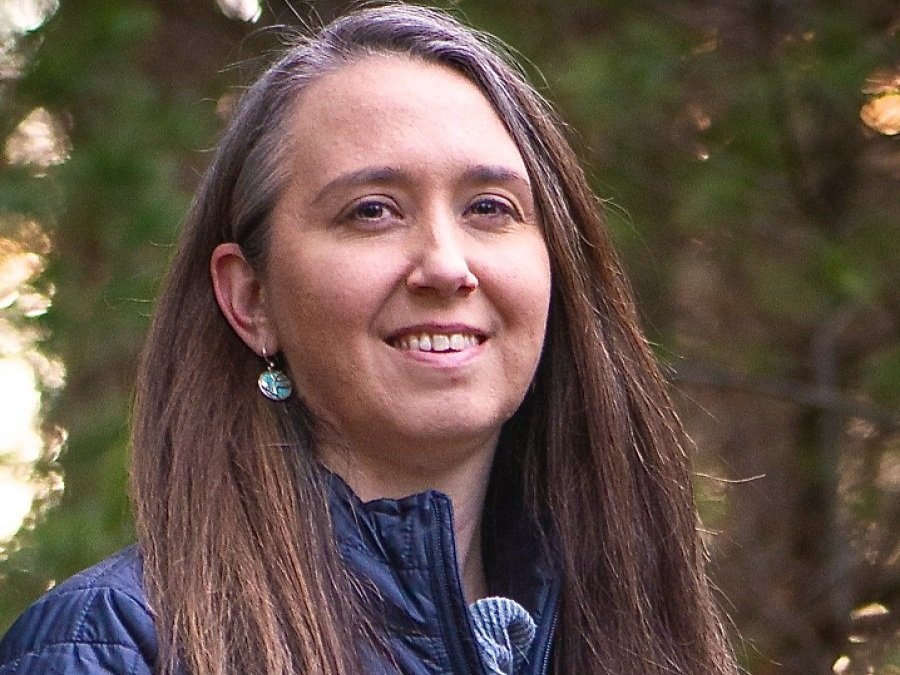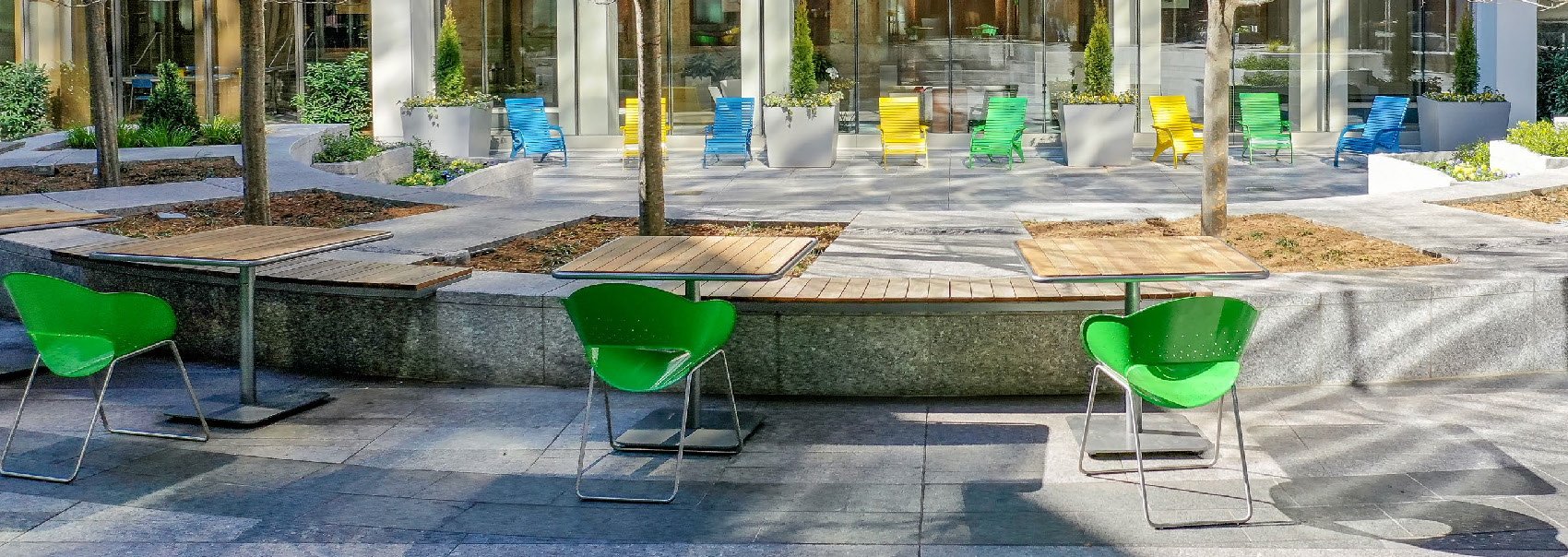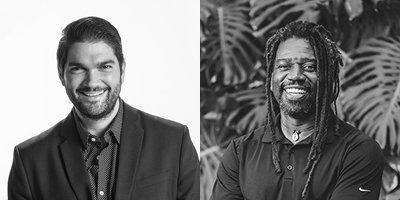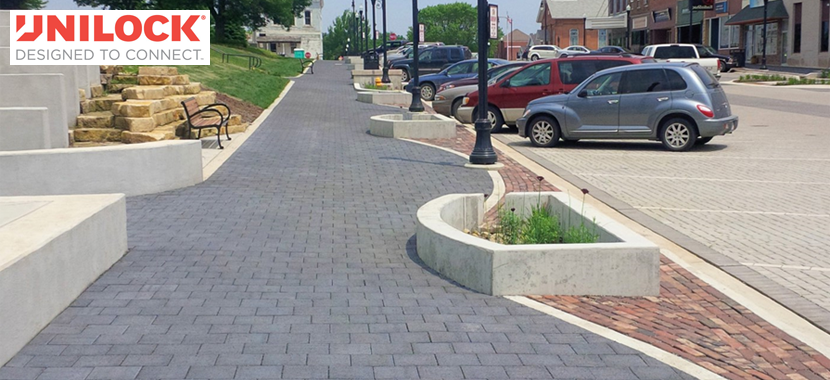Need LA CES?
We’ve got you covered.
Throughout the year, BSLA organizes panels, workshops, and events aimed to grow professional knowledge and advance the practice of landscape architecture in our region. BSLA also regularly partners as a LA CES provider with other nonprofit, academic, and public sector groups in Massachusetts and Maine that offer excellent educational programming on topics relevant to the practice of landscape architecture today.
These are your membership dues at work! We provide LA CES credits as a service to our members and our landscape architecture community. All of the programming below is offered to you, free.
Current partners include Grow Native Massachusetts, the Native Plant Trust, the Rudy Bruner Award for Urban Excellence, and the Portland Society for Architecture. We’re especially excited to announce a new partnership with EPA Region 1 and their “Slow the Flow” series on green infrastructure; that online content will be posted soon.
Mass & Maine landscape architects: Is there a high quality, professional educational program that you’re part of as a speaker, an organizer, or a participant AND that you think should be considered for LA CES? Please let us know. Email gretchen@bslanow.org and we’ll talk through the process of LA CES accreditation. In general, we need at least 2-3 weeks before the live session to pursue accreditation.
This just added. Scroll down for more.
Landscape Architecture + Climate Action in New England
Over 200 people took part in the second annual Landscape Architecture + Climate Action in New England virtual summit. The live event took place online on May 5, 2023.
Watch the video of the 2023 Summit
The Climate Summit offers 3.0 LACES HSW. To receive credit, you must also
BONUS MATERIALS:
A PDF of the slide deck is here.
The detailed Run of Show is here.
The keynote presentation with Undersecretary Antos begins at 7:10. The keynote discussion with Pamela Conrad begins at 1:02. The lightning talks begin at 1:35.
Access the growing list of Related Resources
..including links to the ASLA Climate Action Plan, Climate Positive Design and the (free) Pathfinder tool, as well as resources specific to each New England state.
This is an open source document. Please use the comment tool to add to this list.
These sessions are FREE + available online on demand through 12/31/2023.
Who’s at the Table? Equity, Climate Change and Urban Planning
As part of the Conway School of Landscape Design's 50th year-long anniversary celebration, they hosted this panel discussion exploring equity, climate change, and urban planning.
FEATURING
Magdalena Ayed, Executive Director of The Harborkeepers; Bobby Boone, Founder and Chief Strategist of &Access; and Vernice Miller-Travis, Executive Vice President of Metropolitan Group in an online interactive panel moderated by Conway alum Beth Schermerhorn '13 and Asha Carter, both of the Cambium Collective
(Recorded January 2023)
1.5 LA CES HSW
Step 1: Sign in for LA CES credit
Step 2: Watch the recording
Step 3: Take the quiz
Step 4: Complete the course evaluation
Step 5: Receive certificate!
Please allow 1-2 weeks to receive a certificate via email to the address provided in the Sign In form. Questions? email gretchen@bslanow.org.
SESSION DESCRIPTION
So much of the work that happens in the fields of landscape design and planning is determined by the decision makers. Who are they? When those positions don’t represent the people and places being directly impacted, the result is environmental and social dissonance. Conway invites three leading voices in the fields of environmental justice and urban planning to share their thoughts on this topic.
We’ll explore how people become decision-makers in communities, the barriers to accessing those positions, and the need for the shared understanding and communication that are essential to the design and planning processes.
Native Species, Selections and Cultivars
BSLA is proud to be a longtime partner of Grow Native Massachusetts and their “Evenings with Experts” series.
FEATURING
Uli Lorimer, Native Plant Trust and author, Northeast Native Plant Primer
(Recorded March, 2022)
1.5 LA CES HSW
Step 1: Sign in for LA CES credit
Step 2: Watch the recording
Step 3: Take the quiz
Step 4: Complete the course evaluation
Step 5: Receive certificate!
Please allow 1-2 weeks to receive a certificate via email to the address provided in the Sign In form. Questions? email gretchen@bslanow.org.
SESSION DESCRIPTION
Awareness of the importance of ecologically informed landscaping is surging, and gardeners looking for native plants are often faced with a dizzying array of choices. Uli will address the differences between “wild type” plants and cultivars of natives, and the role the nursery industry plays in how available these plants are for our gardens. The end goal is to empower gardeners to be informed consumers who make good choices for their spaces and for the planet.
A New Garden Ethic: Cultivating Defiant Compassion for an Uncertain Future
BSLA is proud to be a longtime partner of Grow Native Massachusetts and their “Evenings with Experts” series.
FEATURING
Benjamin Vogt, author, A New Garden Ethic: Cultivating Defiant Compassion for an Uncertain Future
(Recorded April, 2022)
1.5 LA CES HSW
Step 1: Sign in for LA CES credit
Step 2: Watch the recording
Step 3: Take the quiz
Step 4: Complete the course evaluation
Step 5: Receive certificate!
Please allow 1-2 weeks to receive a certificate via email to the address provided in the Sign In form. Questions? email gretchen@bslanow.org.
SESSION DESCRIPTION
In a time of mass extinction and climate change, how and for whom we garden matters more than ever. Our built landscapes reflect the dominant ethos of our society—they are too often made to meet the needs and desires of humans without consideration for the diversity of other species with whom we share our planet. What would happen if our society not only developed compassion for other species but recognized and advocated for their inherent worth? Benjamin Vogt will explore why our gardens are ideal settings to cultivate this compassion, and how they can help us grow into our fullest potential as stewards of life.
In addition to A New Garden Ethic, Benjamin Vogt is the author of the forthcoming Prairie Up: An Introduction to Natural Garden Design (publication expected January 2023). Based in Lincoln, Nebraska, he owns Monarch Gardens, a prairie-inspired design firm.
Urban Landscape Inspirations from Native Plant Communities
BSLA is proud to be a longtime partner of Grow Native Massachusetts and their “Evenings with Experts” series.
FEATURING
Benjamin Vogt, author, A New Garden Ethic: Cultivating Defiant Compassion for an Uncertain Future
(Recorded May, 2022)
1.5 LA CES HSW
Step 1: Sign in for LA CES credit
Step 2: Watch the recording
Step 3: Take the quiz
Step 4: Complete the course evaluation
Step 5: Receive certificate!
Please allow 1-2 weeks to receive a certificate via email to the address provided in the Sign In form. Questions? email gretchen@bslanow.org.
SESSION DESCRIPTION
Whether at ground level or high above the city streets, growing plants in an urban setting imposes stress, both for the plants and the people maintaining them. We too often turn to a small palette of non-native species that are over-used and have little to no ecological value. Ethan Dropkin will illustrate how by using existing native plant communities found in naturally stressed ecological environments to guide us, we can use urban conditions to our advantage and create resilient, ecologically-sound plantings.
Since joining Larry Weaner Landscape Associates Ethan Dropkin has been involved in projects ranging from the design of a green roof in Brooklyn to plans for a prairie garden at RBG KEW-Wakehurst in the UK. Trained as a landscape architect and horticulturist, he has worked for Michael Van Valkenburgh Associates and the NYC Parks department.
Creating Inclusive and Resilient Public Spaces
With the Dukakis Center for Urban and Regional Policy at Northeastern University and the Rudy Bruner Award for Urban Excellence as part of the spring 2021 Myra Kraft Open Classroom
SPEAKERS
Mikyoung Kim, FASLA, Founding Principal, Mikyoung Kim Design
Kaki Martin, FASLA, Principal, Klopfer Martin Design Group
Deborah Marton, Executive Director, Van Alen Institute
(Recorded March 17, 2021)
1.0 LA CES HSW
Step 1: Sign in for LA CES credit
Step 2: Watch the recording
Step 3: Take the quiz
Step 4: Complete the course evaluation
Step 5: Receive certificate!
Please allow 1-2 weeks to receive a certificate via email to the address provided in the Sign In form. Questions? email gretchen@bslanow.org.
SESSION DESCRIPTION
There is increasing evidence demonstrating the economic, environmental, and health benefits of public parks and open spaces. How do we ensure that they are open, accessible, and inclusive to all, meeting community needs and addressing environmental demands while fostering community? Landscape architects Mikyoung Kim, Founding Principal of Mikyoung Kim Design, and Kaki Martin, Principal of Klopfer Martin Design Group, join Deborah Marton, Executive Director of the Van Alen Institute, for a conversation about the process of creating inclusive and resilient public spaces. Kim and Martin will draw upon their experiences designing urban landscapes in cities across the United States, including Klopfer Martin’s The Steel Yard (2013 RBA Silver Medalist) in Providence, and Marton will discuss the 126-year-old Van Alen Institute’s current efforts to create equitable cities through inclusive design.
Learning Objectives:
Understand and describe how investment in inclusive and resilient public spaces can address community welfare and affect economic, environmental, and social change.
Discuss the value of engaging in collaborative public private partnerships in the planning, design, and development of public spaces.
Identify and describe examples of inclusive and resilient public spaces.
Discuss common challenges to designing inclusive and resilient spaces and strategies for overcoming them.
The Topography of Wellness: How Health and Disease Shaped the American Landscape
The Maine Section of BSLA/ASLA, along with the Portland Society for Architecture and AIA Maine, are pleased to collaborate on a series of talks reflecting on the past and looking toward the future, "One year after" the COVID crisis transformed our cities. We aim to dive deeper into how we can rebuild our places and spaces to be safe, healthy, and equitable for all.
FEATURING
Sara Jensen Carr, ASLA, Assistant Professor, Northeastern University
(Recorded March 19, 2021)
1.0 LA CES HSW
Step 1: Sign in for LA CES credit
Step 2: Watch the recording
Step 3: Take the quiz
Step 4: Complete the course evaluation
Step 5: Receive certificate!
Please allow 1-2 weeks to receive a certificate via email to the address provided in the Sign In form. Questions? email gretchen@bslanow.org.
SESSION DESCRIPTION
Our changing understanding of the reciprocal relationship between the environment and the body is reflected in the palimpsests of our urban landscape. Concepts of wellness, disease, and treatment have influenced urban design from the Industrial Revolution to today, and the results have ranged from successful to unintended incubations of the next generation of illnesses. As we face a rupture in the parallel histories of public health and the public realm, examining our built environment through this lens is necessary to frame today’s most urgent questions. This talk looks to the past in order to offer meditations on how the urban landscape must shift again to address the intertwined issues of our pandemic present, social justice, and climate change for a healthier future for all.
Learning Objectives:
Recognize how public health crises have been and can be addressed through urban design.
Apply emerging research on built environment and health to present day practices.
Identify the connections between urban design, climate change, and health outcomes.
Understand how the history of urban design and health has influenced the present-day environment.
Managing an Urban Landscape for Biodiversity
BSLA is proud to be a longtime partner of Grow Native Massachusetts and their “Evenings with Experts” series.
FEATURING
Rebecca McMackin, Director of Horticulture, Brooklyn Bridge Park
(Recorded March, 2021)
1.5 LA CES HSW
Step 1: Sign in for LA CES credit
Step 2: Watch the recording
Step 3: Take the quiz
Step 4: Complete the course evaluation
Step 5: Receive certificate!
Please allow 1-2 weeks to receive a certificate via email to the address provided in the Sign In form. Questions? email gretchen@bslanow.org.
SESSION DESCRIPTION
Habitat stewardship is a vital component of creating enduring and ecologically healthy landscapes, particularly in dense urban settings. But traditional landscaping practices rarely take biodiversity into consideration, and there is a dearth of effective guidelines to inform this goal. For horticulturist Rebecca McMackin and her team that cares for the native woodlands, wetlands, and meadows at Brooklyn Bridge Park, cultivating habitat is central to their work. Join us to learn how they are using ecological insight and experimentation to develop new management strategies— and why careful observation and documentation of the insects, birds, and other wildlife in the park has been so crucial to their success.
Rebecca McMackin is the Director of Horticulture for Brooklyn Bridge Park, where she manages 85 acres of diverse parkland with an eye towards habitat creation for birds, butterflies, and soil microorganisms. She is also the Vice-President of the Metro Hort Group in the New York tri-state region.
Learning Objectives:
• Learn how Brooklyn Bridge Park was designed to be both sustainable in a changing climate, and to ecologically rejuvenate a formerly industrial area.
• Understand the management systems that horticultural staff at the Park have instituted over time to keep this built landscape thriving.
• Learn how Park staff have applied ecological knowledge as well as observations of the wildlife present in the Park to create effective management techniques that help foster biodiversity.
New Naturalism: Lessons from Wild Plant Communities
BSLA is proud to be a longtime partner of Grow Native Massachusetts and their “Evenings with Experts” series.
FEATURING
Kelly D. Norris, author of New Naturalism & (former) director of horticulture, Greater Des Moines Botanical Garden
(Recorded April 2021)
1.5 LA CES HSW
Step 1: Sign in for LA CES credit
Step 2: Watch the recording
Step 3: Take the quiz
Step 4: Complete the course evaluation
Step 5: Receive certificate!
Please allow 1-2 weeks to receive a certificate via email to the address provided in the Sign In form. Questions? email gretchen@bslanow.org.
SESSION DESCRIPTION
We are entering an era of purposeful and thoughtful gardening, where we strive to create landscapes that are both aesthetically beautiful and ecologically vibrant. Wild plant communities are a prime source of inspiration for naturalistic design, and understanding how plants interact and function within these environments is key to establishing successful plantings at any scale. Join author and hort-ecologist Kelly Norris in an exploration of North American wild plant communities and the flora within them. He will share how he interprets native ecosystems in the design of beautiful and functional residential landscapes, with plant layers and palettes defined by nature, not humans.
Kelly D. Norris is the author of New Naturalism: Designing and Planting a Resilient, Ecologically Vibrant Home Garden (February 2021), and previously served as the Director of Horticulture and Education for the Greater Des Moines Botanical Garden.
Learning Objectives:
• Learn about Kelly Norris’ vision for the future of home gardening—landscapes designed and planted to support positive environmental change, increase biodiversity, and convey nature’s inherent beauty—as described in his new book, New Naturalism.
• Explore several wild plant communities from North America that can serve as inspiration for naturalistic designs, and understand the key structural and ecological dynamics of these communities that must be incorporated into designs in order to create resilient plantings.
• See how this can be done even in compact, urban settings with examples from landscapes Kelly has designed and installed.
Cultivating Wildlife Conservation
BSLA is proud to be a longtime partner of Grow Native Massachusetts and their “Evenings with Experts” series.
FEATURING
Dr. Desiree Narango, University of Massachusetts Amherst
(Recorded May 2021)
1.5 LA CES HSW
Step 1: Sign in for LA CES credit
Step 2: Watch the recording
Step 3: Take the quiz
Step 4: Complete the course evaluation
Step 5: Receive certificate!
Please allow 1-2 weeks to receive a certificate via email to the address provided in the Sign In form. Questions? email gretchen@bslanow.org.
SESSION DESCRIPTION
Biodiversity is declining at an alarming rate across the globe, and restoring wildlife habitat in urban and suburban green spaces is a crucial way we can stem this tide. To be effective in achieving this critical conservation goal, we need evidence-based guidelines to inform our landscaping decisions and plant selection. Desiree Narango will describe the ecological and evolutionary relationships between plants, pollinators, and songbirds— and highlight her compelling research on why native plants are the essential component of gardens that sustain biodiversity. She will also discuss specific findings from her research to help us identify the necessary proportion of native plants, as well as the plant best genera and species to use, if we are to create thriving wildlife habitat at home and in our communities.
Dr. Desiree Narango is a postdoctoral researcher and David H. Smith Conservation Research Fellow at the University of Massachusetts, Amherst. While earning her Ph.D. at the University of Delaware, she worked closely with Doug Tallamy on numerous research projects. Her focus is on understanding wildlife habitat relationships and plant-animal interactions in novel human-dominated landscapes.
Learning Objectives:
• Understand the critical ecological and evolutionary relationships that bind together plants, insects, and birds, and learn how human disruption of these food webs is contributing to alarming declines in biodiversity.
• Learn how Desiree Narango’s research offers evidence-based guidelines we can use to create truly valuable habitat in urban and suburban landscapes.
• Understand why plant selection—both in terms of species and the proportion of native versus non-native plants—is the essential factor when creating landscapes that sustain biodiversity.
Carbon in the Landscape
This session was created in partnership with the Boston Society for Architecture and Carbon Leadership Forum Boston as part of their “Embodied Carbon” series.
FEATURING
Pamela Conrad, ASLA, principal, CMG Landscape Architecture;
Rachel Loeffler, ASLA, principal, Berkshire Design Group;
John McMeeking, landscape architect, SMRT Architects & Engineers
(Recorded June 2021)
1.0 LA CES HSW
Step 1: Sign in for LA CES credit
Step 2: Watch the recording
Step 3: Complete the course evaluation
Step 4: Receive certificate!
Please allow 1-2 weeks to receive a certificate via email to the address provided in the Sign In form. Questions? email gretchen@bslanow.org.
SESSION DESCRIPTION
Site design professionals play a critical role in helping to reduce the embodied (and operational) carbon in the landscape. The landscape has an innate ability to naturally sequester carbon from the atmosphere, and even small design choices can result in significant carbon reductions. By asking the challenging questions from the outset of the project, a logical path can be developed to ensure the early integration of low-carbon design strategies [What is the primary use of the space? To what extent are hardscape materials needed? How and where are the materials made? Where are the plant materials being grown and transported from? Can any of the design elements be recycled in the future?]. This session will examine ways to take a holistic approach to site design and will review carbon tracking/calculating with the intent of creating a more sustainable and ecologically sensitive built environment. The intent is for this to be a collaborative and open discussion, so all ideas are welcome.
Learning Objectives:
Explore the carbon emission impacts of site design (from day 1 of the project).
Review ways to track and calculate carbon impacts on site development projects.
Identify the challenges to reducing carbon impacts of site development.
How to commit to a holistic approach to carbon reduction in the landscape.
Need more? also check these out:
Online + On-Demand LA CES offerings provided by our Partner Sponsors
(Sponsors! If your company offers online education for landscape architects that you’d like to list here, please let us know!)
Extra Credit!
AEC Daily offers over 100 online, self-paced, LA CES accredited courses
Note! BSLA has no connection to AEC Daily. We are simply offering this link to serve you, our landscape architects. AEC Daily is one of the world’s largest sources of FREE continuing education for architects and other construction professionals.
Go to aecdaily.com, click on “Continuing Education,” click on “Certification,” and scroll down to that friendly yellow LA CES box to see the lineup of current course offerings.
















